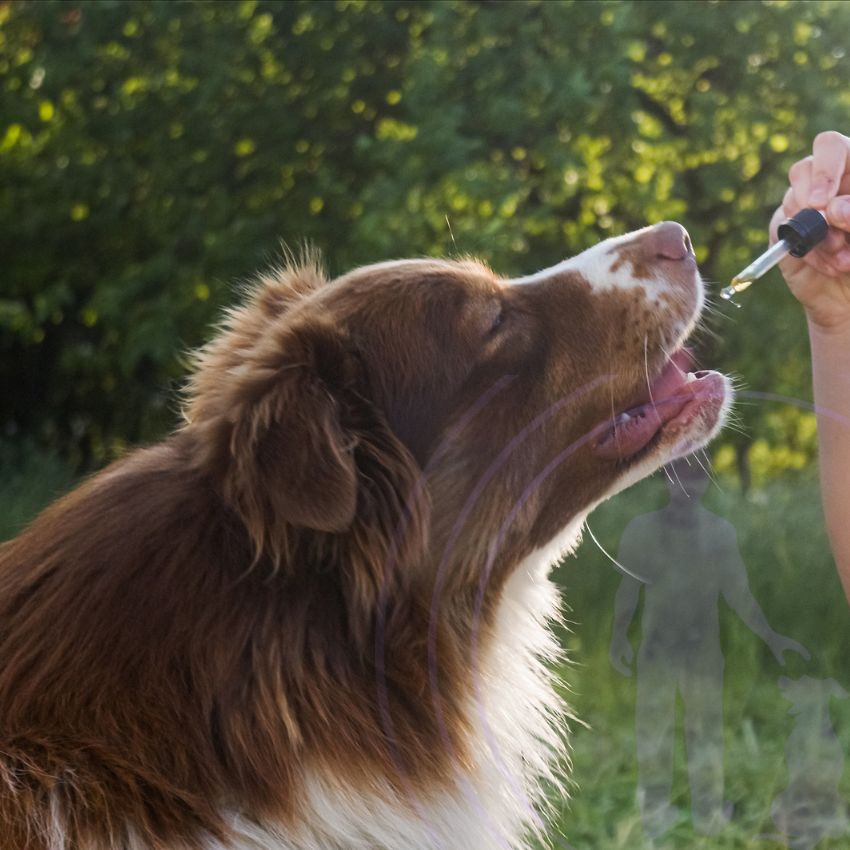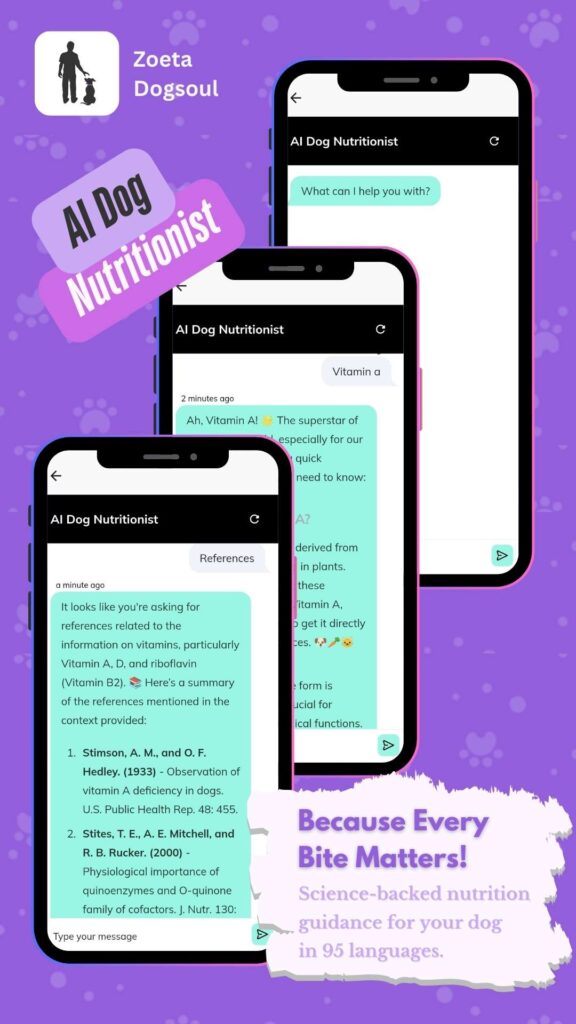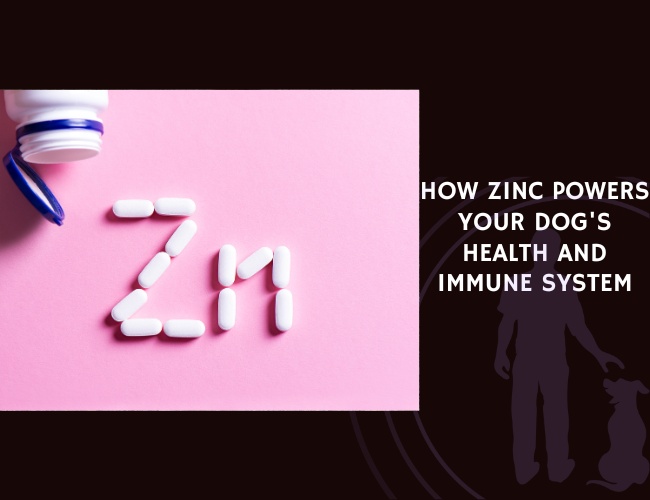Understanding Zinc: A Vital Mineral for Dogs
Overview of Zinc as an Essential Trace Element in Canine Health
Zinc is a trace mineral that plays a critical role in canine health. While it is required only in small quantities, its presence is crucial for various biological processes that maintain a dog’s overall well-being. Zinc cannot be synthesized by a dog’s body and must be obtained through their diet. Ensuring sufficient levels of zinc helps safeguard against numerous health issues and supports optimal functioning of bodily systems.
Role in Multiple Biological Processes
Zinc is involved in over 300 enzymatic reactions that impact processes such as protein synthesis, DNA replication, and hormone production. This mineral also plays a critical role in metabolism. It aids in the breakdown of carbohydrates, fats, and proteins to produce energy efficiently. The body’s day-to-day functioning, including cell growth and division, is highly dependent on these biochemical pathways influenced by zinc.
Why Zinc is Crucial for Dogs’ Overall Wellbeing
Support for the Immune System
One of the most significant roles zinc plays is in supporting a dog’s immune system. This mineral helps in the development and function of immune cells, which are essential in combating infections and diseases. Proper zinc levels ensure that the immune system can respond effectively to pathogens, reducing the risk of infections and enhancing overall health.
Skin Health and Wound Healing
Zinc is vital for maintaining skin integrity and promoting wound healing. This mineral bolsters the production of collagen, a protein necessary for the structure and strength of the skin. It aids in cellular repair and regeneration, which is crucial for healing skin lesions and maintaining a healthy coat. Dogs with adequate zinc levels are less likely to suffer from skin disorders and are better equipped to recover from injuries.
Antioxidant Properties
Additionally, zinc acts as an antioxidant by neutralizing free radicals, which are unstable molecules that can cause cellular damage. This antioxidant property helps to protect cells from oxidative stress, contributing to longevity and reducing the risk of chronic diseases.
Growth and Development
For puppies, zinc is indispensably important for growth and development. It supports bone formation and enhances cognitive functions. Adequate zinc levels help ensure that growing dogs develop strong bones and robust muscle structures, laying the foundation for a healthy adult life.
Transition to Next Topic
Understanding the critical functions zinc performs within a dog’s body underscores its importance. Recognizing the signs of zinc deficiency is key to preemptive care, which will be discussed in further detail in the following sections. Ensuring adequate zinc through diet and possibly supplements is essential in maintaining your dog’s health and well-being.
Key Biological Functions of Zinc
Zinc is an essential mineral for dogs, playing pivotal roles in numerous biological functions that are integral to their health. Understanding these functions can help pet owners ensure their dogs maintain optimal health and wellbeing.
Zinc’s Role in Enzymatic Reactions and Metabolism
Zinc is a key component in over 300 enzymatic reactions within the body. These reactions are vital for various metabolic processes including protein synthesis, carbohydrate metabolism, and lipid metabolism. Zinc acts as a cofactor for enzymes, facilitating the chemical reactions necessary to break down nutrients and convert them into energy. Without sufficient zinc, these metabolic processes can slow down, leading to issues such as poor growth, weight loss, and lethargy.
Protein synthesis is particularly important as it involves the formation of new proteins necessary for muscle development, hormone production, and the repair of tissues. Since dogs are highly active, the demand for efficient protein utilization is substantial, making zinc an indispensable element in their diet.
Importance in Immune System Function and Disease Prevention
Zinc plays a critical role in maintaining a healthy and robust immune system. It promotes the proliferation and function of T cells and B cells, which are essential in identifying and combating pathogens. Zinc deficiency can impair the immune response, making dogs more susceptible to infections and diseases.
Furthermore, zinc has antioxidant properties, meaning it can neutralize free radicals in the body. Free radicals are unstable molecules that can cause cellular damage, contributing to chronic illnesses and aging. By reducing oxidative stress, zinc helps protect cells and supports overall canine health. In essence, adequate levels of zinc bolster the dog’s defense mechanisms, helping to keep infections and diseases at bay.
Contribution to Skin Health and Cellular Repair
Skin health is another vital area where zinc makes a significant impact. It supports the production and maintenance of collagen, a structural protein crucial for skin integrity and elasticity. Adequate collagen levels ensure that the skin can act as a barrier against environmental elements and pathogens.
Zinc also aids in cellular repair and regeneration. It is involved in DNA synthesis and cell division, processes essential for replacing damaged cells and promoting healing. In cases of skin injuries or wounds, zinc accelerates tissue repair, reducing healing time and preventing potential complications.
Moreover, zinc contributes to maintaining coat health. Dogs deficient in zinc often exhibit symptoms like dry, flaky skin and a dull coat. Ensuring your dog receives enough zinc can prevent these issues, keeping their skin and fur healthy and vibrant.
Brief Transition to the Next Topic
Understanding these critical roles highlights the importance of ensuring adequate zinc levels in your dog’s diet. In the next part, we’ll delve into the signs that could indicate your dog is not getting enough zinc, helping you recognize and address deficiency early.
Signs of Zinc Deficiency
Zinc is an essential trace mineral that plays a critical role in your dog’s health. When dogs do not receive adequate zinc, they can develop a range of symptoms that can adversely affect their overall wellbeing. This chapter will explore the common signs of zinc deficiency in dogs, its impact on the immune system, and how it affects growth and development, particularly in puppies.
Common Symptoms: Skin Lesions and Poor Coat Health
One of the earliest and most noticeable signs of zinc deficiency in dogs is skin problems. These issues frequently manifest as skin lesions, which can appear as scaly or crusty patches, especially around the dog’s face, ears, and paws. The skin might become rough, dry, and not heal properly, leading to more severe complications if not addressed promptly.
Another common symptom is poor coat health. Dogs with inadequate zinc levels often have dull, brittle fur that lacks the usual shine and softness. The hair might fall out more than usual, resulting in bald spots or a thin, patchy appearance. The coat’s overall condition can significantly deteriorate, making it an easy visual cue for pet owners to recognize a potential zinc deficiency.
Immune System Impact and Susceptibility to Infections
Zinc is crucial for maintaining a robust immune system. It helps in the production and function of white blood cells, which are vital for fighting off infections. When a dog is deficient in zinc, its immune response weakens, making it more susceptible to a variety of infections.
Such dogs might experience recurrent infections, particularly of the skin, respiratory system, and gastrointestinal tract. Due to the impaired immune function, wounds and injuries might take longer to heal, and there could be an increased incidence of diseases that a healthy immune system would typically manage effectively.

Growth and Development Issues, Especially in Puppies
For puppies, adequate zinc intake is indispensable for proper growth and development. Zinc deficiency in young dogs can lead to a host of developmental problems.
Puppies that do not get enough zinc may exhibit stunted growth, as zinc plays a crucial role in cellular division and protein synthesis, both of which are vital for growth. Additionally, these puppies might suffer from skeletal abnormalities and delayed bone development, since zinc is essential for bone formation.
Cognitive development can also be compromised. Puppies deficient in zinc may show signs of lethargy, decreased activity, and slower learning and response times. Overall, the early stages of a dog’s life are critical, and sufficient zinc is paramount for ensuring they grow into healthy, well-developed adults.
Ensuring your dog has the right amount of zinc is key to maintaining their health and preventing these issues. Next, we’ll delve into the dietary sources of zinc and how to ensure your dog gets enough of this vital mineral through their diet.
Dietary Sources and Nutrition
Natural Food Sources Rich in Zinc
Ensuring that dogs receive an adequate amount of zinc through their diet is crucial for maintaining their overall health. Zinc is found in a variety of natural food sources which can be included in a dog’s diet.
Some of the best sources of zinc include:
- Meat and Poultry: Beef, chicken, and lamb are all excellent sources of zinc. These should ideally be cooked to ensure safety.
- Fish: Salmon and sardines not only provide zinc but also offer essential omega-3 fatty acids, which can further benefit skin and coat health.
- Eggs: Both the yolk and the white contain beneficial nutrients, including zinc.
- Pumpkin Seeds: These seeds are rich in zinc and can be safely added to a dog’s diet in small amounts.
- Dairy Products: Cheese and yogurt can provide zinc but should be given in moderation due to their lactose content.
Differences Between Commercial and Homemade Diets

When it comes to feeding dogs, there are two primary options: commercial dog foods and homemade diets. Both have their advantages and can provide the necessary zinc when managed correctly.
Commercial Diets
Commercial dog foods are generally formulated to meet the nutritional needs of dogs based on guidelines established by organizations such as the Association of American Feed Control Officials (AAFCO). Many commercial dog foods are fortified with zinc to ensure dogs receive the appropriate amount. However, the quality and bioavailability of the zinc can vary depending on the brand and the ingredients used. Hence, it’s crucial to choose high-quality commercial dog foods that specify their zinc content.
Homemade Diets
Homemade diets allow pet owners to have complete control over the ingredients and their quality. When preparing a homemade diet, it is important to include a variety of zinc-rich foods mentioned earlier. However, ensuring the right balance of nutrients in homemade diets can be challenging and may require the guidance of a veterinary nutritionist. Homemade diets also need to account for potential inhibitors of zinc absorption, such as the presence of high levels of calcium or phytates, which are commonly found in grains and legumes.
Factors Affecting Zinc Absorption and Bioavailability
The absorption and bioavailability of zinc can be influenced by various dietary factors:
- Phytates: Found in grains and legumes, phytates can bind with zinc and inhibit its absorption. Including whole grains in moderation and properly preparing them (soaking, sprouting, or fermenting) can help reduce phytate levels.
- Calcium: High levels of calcium, especially in homemade diets rich in bone meal, can compete with zinc for absorption in the intestines. Balancing calcium and zinc intake is crucial.
- Fiber: While fiber is beneficial for digestion, excessive fiber can hinder zinc absorption. Moderation is key.
- Protein: Adequate protein intake is essential as it enhances zinc absorption. Ensuring that the diet is rich in high-quality animal proteins can improve zinc bioavailability.
Understanding these factors and properly balancing the diet can help optimize zinc absorption, ensuring dogs receive the full benefit of this essential nutrient.
Next, it is important to explore appropriate zinc supplementation practices, ensuring safe dosage and understanding when dietary adjustments might be necessary for maintaining optimal zinc levels in dogs.
Supplementation Guidelines
Maintaining optimal zinc levels in dogs is essential for their health and development. While a well-balanced diet can often meet their zinc requirements, some dogs may need supplementation. This section will discuss age-specific dosage recommendations, safe supplementation practices, potential risks, and when to consider zinc supplements versus dietary adjustments.
Age-Specific Dosage Recommendations
The zinc requirements for dogs can vary based on age, size, and health status. Puppies, adult dogs, and senior dogs each have different nutritional needs:
Puppies
Puppies have rapid growth rates and higher metabolic demands. Ensuring adequate zinc levels is vital for their developing immune systems, skin health, and overall growth. The recommended dietary allowance for zinc in puppies is typically around 0.8 mg/kg of body weight per day.
Adult Dogs
For adult dogs, zinc supports maintenance and overall health. The typical recommended daily allowance for adult dogs is around 1 mg/kg of body weight. This requirement can vary depending on dietary zinc bioavailability and the presence of any health conditions that might affect zinc absorption.
Senior Dogs
Senior dogs often face declining digestive efficiency and altered metabolic rates. Thus, zinc becomes even more critical as part of their diet to maintain immune function and skin integrity. The recommended zinc intake for senior dogs usually remains similar to adult dogs, around 1 mg/kg of body weight, with adjustments based on individual health needs.
Safe Supplementation Practices and Potential Risks
When supplementing zinc, it’s crucial to adhere to safe practices and recognize the potential risks of over-supplementation. Too much zinc can lead to toxicity, with symptoms such as vomiting, diarrhea, and lethargy.
Safe Supplementation
- Consultation with a Veterinarian: Always seek advice from a veterinarian before adding zinc supplements to your dog’s regimen. They can provide specific dosage recommendations tailored to your dog’s needs.
- Quality of Supplements: Use high-quality zinc supplements specifically designed for dogs. Human zinc supplements may contain other ingredients that could be harmful.
- Proper Dosage: Follow the dosage instructions carefully to avoid excessive intake. Start with the recommended amount and monitor your dog for any adverse reactions.
Potential Risks
- Zinc Toxicity: Excessive zinc intake can cause toxicity. Symptoms include gastrointestinal distress, lethargy, and in severe cases, organ failure. Regular monitoring and vet consultations can prevent such risks.
- Interactions with Other Minerals: Zinc can interfere with the absorption of other essential minerals like copper and iron. It’s important to balance these nutrients to avoid secondary deficiencies.
When to Consider Zinc Supplements Versus Dietary Adjustments
Deciding between dietary adjustments and supplementation depends on several factors, including your dog’s health status, dietary habits, and specific needs.
- Dietary Adjustments:
- Natural Food Sources: Before considering supplements, try to incorporate natural zinc-rich foods into your dog’s diet. Good sources of zinc include meat (especially red meat), fish, eggs, and pumpkin seeds.
- Home-Cooked Diets: If you prepare homemade meals for your dog, ensure they contain adequate zinc. Consulting a veterinary nutritionist can help formulate a balanced diet.
- Bioavailability Factors: Be aware that some foods contain phytates, which can inhibit zinc absorption. Adjustments may be needed for high-phytate diets to ensure proper zinc intake.
- Zinc Supplements:
- Health Conditions: In cases where dogs have health conditions that impair zinc absorption or increase zinc requirements, supplements might be necessary. Conditions such as zinc-responsive dermatosis or digestive disorders may warrant supplementation.
- Dietary Gaps: If a dog’s diet, whether commercial or homemade, doesn’t provide sufficient zinc, supplements can help fill this gap. Commercial kibble and canned food typically list zinc content, making it easier to assess dietary intake.
Ensuring that your dog receives enough zinc is essential for their health and wellbeing. By understanding their specific needs and carefully considering dietary adjustments or supplementation, you can maintain optimal zinc levels and support their overall vitality.



